
International Journal of Sport and Exercise Psychology
Scope & Guideline
Connecting Research to Real-World Athletic Success
Introduction
Aims and Scopes
- Psychological Constructs in Sport and Exercise:
The journal focuses on the exploration of various psychological constructs such as motivation, self-efficacy, emotional regulation, and mental health, particularly in relation to athletic performance and exercise participation. - Cultural and Contextual Influences:
Research published in the journal often emphasizes the importance of cultural, social, and contextual factors that shape the psychological experiences of athletes and exercisers, highlighting the need for culturally relevant approaches in sport psychology. - Interventions and Practical Applications:
The journal promotes studies that evaluate psychological interventions designed to enhance performance, well-being, and resilience among athletes, including mindfulness training, cognitive-behavioral techniques, and motivational strategies. - Developmental Perspectives:
There is a consistent interest in developmental trajectories and transitions in athletes' careers, including youth and elite athletes, as well as the psychological impacts of these transitions on performance and well-being. - Health and Well-being:
Research addressing the links between physical activity, exercise, and psychological well-being is a core focus, particularly in understanding how exercise can serve as a tool for mental health promotion.
Trending and Emerging
- Mental Health and Well-being:
There is an increasing focus on mental health within the context of sport and exercise, particularly regarding the psychological distress experienced by athletes and the importance of mental health interventions. - Technology and Performance Enhancement:
Research exploring the impact of technology, including wearable devices and virtual training environments, on performance and psychological states is gaining traction, reflecting the integration of technology in modern sport. - Culturally Inclusive Practices:
Emerging studies emphasize the need for culturally inclusive practices in sport psychology, addressing the experiences of diverse athlete populations and the importance of culturally sensitive interventions. - Interdisciplinary Approaches:
The trend towards interdisciplinary research is evident, with studies increasingly incorporating perspectives from fields such as neuroscience, sociology, and public health to enrich the understanding of psychological phenomena in sport. - Youth Development and Dual Careers:
Research focusing on youth athlete development and the dual career pathways of student-athletes is on the rise, addressing the complexities of balancing sport and education while promoting holistic development.
Declining or Waning
- Traditional Performance Metrics:
There is a noticeable decline in research focused solely on traditional performance metrics, such as win-loss records and statistical analysis of athletic performance, as the field moves towards a more holistic understanding of athlete well-being. - Gender-Specific Studies:
Research specifically targeting gender differences in sport psychology has decreased, possibly due to a shift towards more intersectional approaches that consider a broader range of identities and experiences. - Doping and Ethical Issues:
Studies examining doping behaviors and ethical considerations in sports have waned, potentially overshadowed by more pressing issues related to mental health and well-being in athletes. - Physical Education Contexts:
The focus on physical education as a context for sport psychology research has diminished, possibly as researchers prioritize elite sport settings and competitive environments. - Static Models of Athlete Development:
Research employing static models of athlete development is becoming less common, as there is a growing emphasis on dynamic and contextual approaches that consider the complexities of athletic careers.
Similar Journals
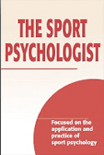
SPORT PSYCHOLOGIST
Exploring the Intersection of Psychology and PerformanceThe Sport Psychologist, published by Human Kinetics Publishers Inc, is a premier journal dedicated to advancing the field of sport psychology. With its ISSN of 0888-4781 and E-ISSN 1543-2793, this comprehensive journal spans a diverse range of research topics and applications from 1996 to 2024. Recognized in the Q3 category in both Applied Psychology and Sports Science as of 2023, it provides an essential platform for researchers and practitioners aiming to deepen their understanding of psychological principles in athletic contexts. Although not open access, the journal’s impactful research contributes significantly to the academic community, making it a crucial resource for those involved in the psychological aspects of sports and exercise. The journal's Scopus ranking further reflects its relevance, sitting at Rank #133 out of 249 in the Psychology—Applied Psychology field, placing it in the 46th percentile. The Sport Psychologist is vital for anyone interested in the intersection of psychology and sports, offering insights that can enhance performance, well-being, and overall athletic development.
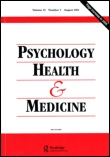
Psychology Health & Medicine
Innovating Insights at the Intersection of Mind and MedicinePsychology Health & Medicine, published by Routledge Journals, Taylor & Francis Ltd, stands at the intersection of mental health and healthcare, delivering pioneering research that advances our understanding of psychological well-being. With a prestigious Q2 ranking in Applied Psychology, Clinical Psychology, and Psychiatry and Mental Health, this journal has established itself as an essential resource for academics and practitioners alike, reflecting a commitment to quality and relevance within the field. The journal focuses on empirical studies, reviews, and innovative practices that bridge psychological theory and health outcomes, aiming to inform and support professionals in delivering evidence-based care. With an ISSN of 1354-8506 and an E-ISSN of 1465-3966, the journal has been a key player since its inception in 1996, and continues to provide impactful insights crucial for the ongoing evolution of psychological and medical disciplines. Researchers can access a wealth of knowledge to bolster their studies, ensuring that they remain at the forefront of developments in psychology and health.

Annals of Applied Sport Science
Empowering the Future of Applied Sport ScienceThe Annals of Applied Sport Science, published by ANNALS APPLIED SPORT SCIENCE, is an esteemed open-access journal dedicated to advancing research in the fields of applied psychology, orthopedics, sports medicine, physical therapy, and social sciences related to sports and recreation. Launched in 2013, this journal aims to foster collaboration among researchers, practitioners, and educators by disseminating high-quality, peer-reviewed research that addresses contemporary issues in sports science and practices. Operating from Iran, the journal has demonstrated its significance by maintaining a strong presence in various academic rankings, including Q4 rank in Applied Psychology and Q3 ranks in Orthopedics and Sports Medicine, demonstrating its multidisciplinary approach. As it embarks on converging research from 2017 to 2024, the journal welcomes contributions that span innovative methodologies, evidence-based practices, and critical discussions that shape future perspectives in sports-related fields. With an accessible format, the Annals of Applied Sport Science is poised to make a lasting impact on its community of readers, including researchers, professionals, and students eager to engage with cutting-edge findings and trends.
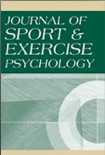
JOURNAL OF SPORT & EXERCISE PSYCHOLOGY
Delving into the Psychological Dimensions of MovementJOURNAL OF SPORT & EXERCISE PSYCHOLOGY, published by Human Kinetics Publishing Inc, stands as a premier resource in the realms of Applied Psychology and Sports Science. With a dedicated focus on the psychological aspects of sport and exercise, this journal delivers empirical research, critical reviews, and practical insights that are essential for practitioners, researchers, and students alike. Since its inception in 1996, the journal has shown remarkable growth, now garnering a commendable impact factor reflected in its Q2 and Q3 quartile rankings across relevant fields. Although not an open access journal, it facilitates access to rigorously evaluated content that contributes significantly to the understanding of psychological processes in athletic performance and physical activity. With its rich blend of theoretical and applied perspectives, the JOURNAL OF SPORT & EXERCISE PSYCHOLOGY is positioned as an indispensable tool for enhancing knowledge in both academic and applied settings.
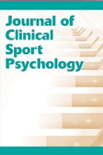
Journal of Clinical Sport Psychology
Unlocking Psychological Potential in Athletics.Journal of Clinical Sport Psychology, published by HUMAN KINETICS PUBL INC, is a leading academic journal that delves into the intricate interfaces of psychology and sport, offering critical insights into mental performance, athlete wellbeing, and coaching strategies. With its ISSN 1932-9261 and E-ISSN 1932-927X, this journal serves as a vital resource for researchers, professionals, and students interested in applied psychology, highlighting groundbreaking studies and innovative practices since its inception in 2007. Boasting a commendable impact factor and ranking within the Q2 category for Applied Psychology, it is recognized for fostering scholarly dialogue and advancing knowledge in areas such as sport performance enhancement, mental health in athletics, and the psychological aspects of physical training. While currently not open access, it remains a crucial publication for those seeking to elevate their understanding of the psychological dynamics at play in sports contexts. For those looking to stay abreast of the latest research trends in this evolving field, the Journal of Clinical Sport Psychology is an indispensable addition to any academic library.
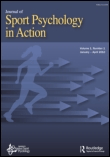
Journal of Sport Psychology in Action
Connecting Research and Real-World Athletic ChallengesJournal of Sport Psychology in Action, published by Routledge Journals, Taylor & Francis Ltd, is an influential peer-reviewed journal that bridges the gap between theoretical research in sport psychology and practical applications in various athletic contexts. Since its inception in 2010, the journal has provided a platform for authors to showcase innovative studies and findings that contribute to the understanding of psychological factors affecting sports performance. With its current Q3 quartile ranking in the fields of Applied Psychology, Human Factors, and Social Psychology, the journal's impact is steadily growing, appealing to both seasoned researchers and emerging scholars alike. Although the journal does not currently offer Open Access options, it remains committed to disseminating critical insights through its comprehensive peer-review process. The ISSN for print versions is 2152-0704 and for electronic versions 2152-0712. As a vital resource for professionals in sports psychology, the journal strives to address contemporary challenges in the field and promote evidence-based practices that enhance athletic performance.

European Journal of Human Movement
Pioneering Discoveries in Rehabilitation and TherapyThe European Journal of Human Movement, published by the University of Extremadura, Faculty of Sports Sciences in Spain, stands as a vital resource within the realms of Health, Physical Therapy, and Social Sciences. With its consistent commitment to Open Access since 2014, the journal facilitates the dissemination of high-quality research, fostering innovation and collaboration among scholars, practitioners, and students alike. The journal has carved out a niche in its categories, being ranked in the Q3 quartile across several fields, including Health (social science) and Physical Therapy, Sports Therapy, and Rehabilitation. With an ongoing publication timeline extending from 2019 to 2024, it aims to highlight contemporary issues, emerging trends, and groundbreaking studies within human movement sciences. Additionally, with its presence in the Scopus ranking and a determination to elevate research standards, the journal remains an essential platform for sharing knowledge and advancing professional practice in a rapidly evolving landscape.

Sport Sciences for Health
Transforming Sports Science into Health SolutionsSport Sciences for Health is a leading journal published by SPRINGERNATURE that aims to advance the understanding and application of sports science within healthcare contexts. Established in 2004, this journal has successfully provided a platform for innovative research and discussions in the fields of Orthopedics, Sports Medicine, and general Sports Science, achieving a commendable Q3 ranking in both categories as per the 2023 Scopus quartile rankings. With an active publication schedule through 2024, Sport Sciences for Health offers invaluable insights for researchers, professionals, and students who are eager to explore the intricate relationships between sport and health outcomes. This journal, set in Italy, encourages the dissemination of significant findings that can enhance athletic performance, rehabilitation strategies, and public health initiatives, fostering an integrative approach to both theory and practical applications in the realm of sport sciences.

INTERNATIONAL JOURNAL OF SPORT PSYCHOLOGY
Illuminating the Psychological Pathways in SportsThe INTERNATIONAL JOURNAL OF SPORT PSYCHOLOGY is a prominent publication dedicated to advancing the field of sport psychology through rigorous research and insightful commentary. Published by EDIZIONI LUIGI POZZI, this journal has been a vital resource since its inception, providing a platform for scholars and practitioners to explore the psychological dimensions that influence athletic performance and physical activity. Although it operates under a non-open access model, the journal remains committed to quality and relevance, holding a category quartile of Q3 in Applied Psychology as of 2023. With a historical coverage ranging from 1973 to 2021, it serves as a comprehensive archive for a diverse audience seeking to deepen their understanding of psychological principles in sports contexts. Researchers, professionals, and students will find this journal indispensable for accessing influential studies and emerging trends within the discipline.

RESEARCH QUARTERLY FOR EXERCISE AND SPORT
Exploring Innovations in Physical Therapy and Sports MedicineRESEARCH QUARTERLY FOR EXERCISE AND SPORT, published by Routledge Journals, Taylor & Francis Ltd, stands as a premier publication dedicated to advancing knowledge in the fields of physical therapy, sports medicine, and exercise science. With an impressive impact factor and a well-established reputation, this journal has consistently ranked among the top in multiple disciplines, including Q1 in Physical Therapy, Sports Therapy, and Rehabilitation. Covering a broad array of topics from clinical practices to innovative research, the journal fosters a platform for interdisciplinary collaboration and evidence-based practice. Its open access policy enables wider dissemination of groundbreaking research, appealing to a diverse audience of researchers, clinicians, and students. As it continues to contribute to the evolution of sports science and medicine, the RESEARCH QUARTERLY FOR EXERCISE AND SPORT remains an essential resource for those dedicated to enhancing health and performance through rigorous scholarly inquiry.